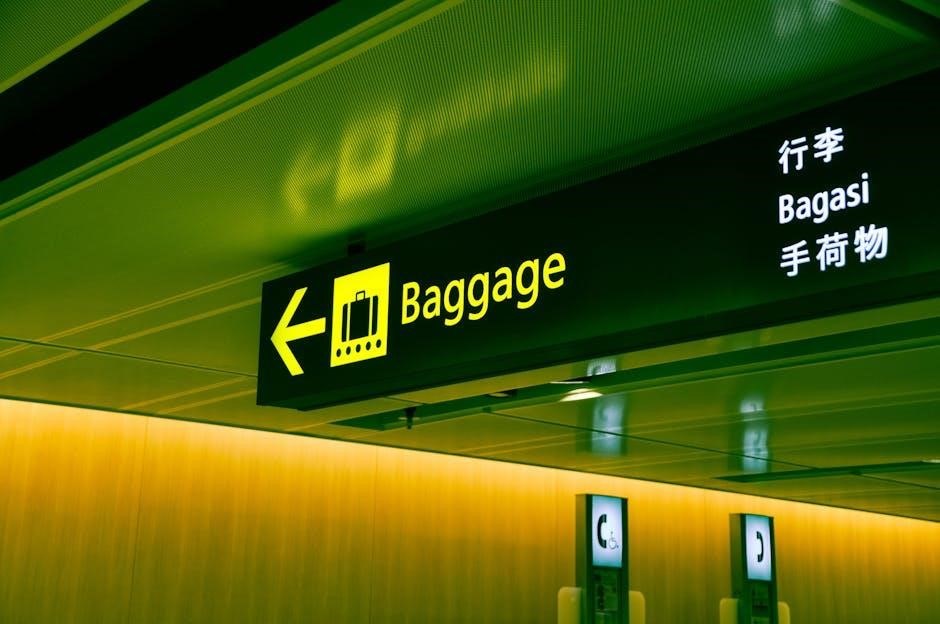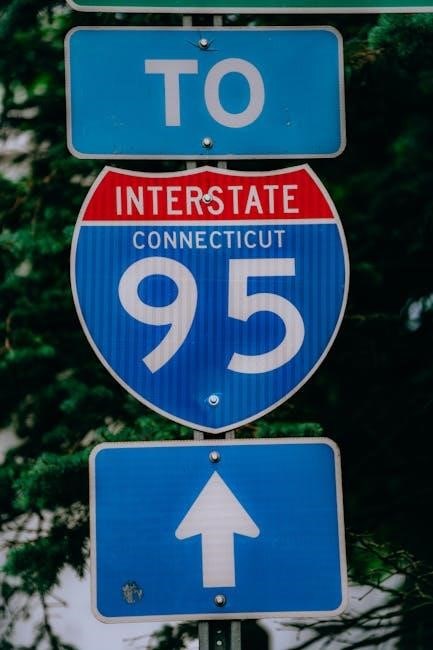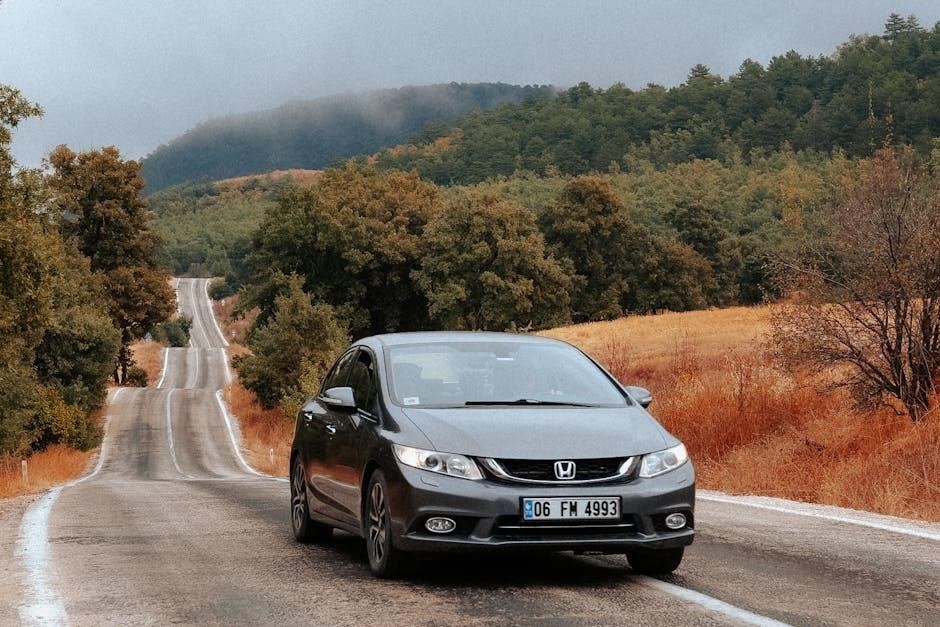Traveling with no money is achievable by embracing budget-friendly strategies, leveraging free resources, and connecting with global communities. Explore the world with creativity and minimal expense.
Understanding the Challenges of Budget Travel
Budget travel presents unique challenges, including limited financial resources, navigating visa requirements, and finding affordable accommodation. Travelers must manage daily expenses carefully, relying on cost-effective strategies like cooking meals and using public transport. Health and safety concerns, such as accessing medical care with limited funds, add another layer of complexity; Language barriers and cultural differences can also complicate planning and navigation. Additionally, balancing spontaneity with strict budgeting requires discipline and adaptability. Despite these hurdles, budget travel fosters creativity and resourcefulness, making it a rewarding experience for those willing to embrace simplicity and flexibility.
Why Traveling with No Money is Possible
Traveling with no money is possible by leveraging free resources, community networks, and creative strategies. Platforms like Couchsurfing offer free accommodation, while work exchanges and volunteering provide opportunities to earn your keep. Selling skills online or freelancing allows you to generate income on the go. Additionally, travel rewards and points can be used to offset costs. By embracing minimalism and connecting with local communities, you can experience cultures without significant financial investment. The key is to be resourceful, flexible, and open to new experiences, proving that travel is accessible even with limited funds.
Key Principles for Affordable Travel
Affordable travel revolves around minimalism, resourcefulness, and flexibility. Embrace a minimalist lifestyle to reduce expenses and focus on experiences over material possessions. Leverage free resources like public Wi-Fi, community networks, and Couchsurfing for accommodation. Flexibility in your itinerary allows you to capitalize on last-minute deals or spontaneous opportunities. Prioritize cooking your own meals and using public transportation to save on daily costs. Bargaining and negotiating prices, especially in local markets, can significantly cut expenses. By adopting these principles, you can explore the world without breaking the bank, proving that travel is about creativity and connection, not just money.

Planning Your Trip
Effective trip planning involves defining your travel goals, budgeting, and organizing logistics. Research destinations, understand visa requirements, and secure affordable accommodation to ensure a smooth journey.
Choosing the Right Destination
Choosing the right destination is crucial for affordable travel. Consider countries with low living costs, affordable transportation, and free or low-cost activities. Research destinations that align with your travel goals and budget. Opt for places with vibrant cultural experiences, accessible nature, and affordable accommodation. Popular budget-friendly destinations include Southeast Asia, Eastern Europe, and Central America. Look for cities with free walking tours, local markets, and community-driven initiatives. Seasonal variations and off-peak travel can also reduce expenses. Always prioritize destinations that offer rich experiences without hefty price tags, ensuring a fulfilling journey even with limited funds.
Setting a Realistic Budget
Setting a realistic budget is essential for traveling with minimal funds. Start by assessing your income, savings, and weekly expenses to determine how much you can allocate for travel. Prioritize essential costs like accommodation, food, and transportation, and allocate funds accordingly. Use budgeting apps or spreadsheets to track your spending and stay disciplined. Consider budget-friendly options like cooking meals instead of dining out and using public transport. Pad your budget slightly for unexpected expenses, but avoid overestimating costs. A well-planned budget ensures you can enjoy your journey without financial stress, allowing you to travel longer and more sustainably.
Understanding Visa Requirements
Understanding visa requirements is crucial for seamless travel. A visa grants legal entry into a country, with types including tourist, work, and transit visas. Research each destination’s requirements via embassy websites or travel agencies. Ensure your passport is valid for at least six months beyond your stay. Gather necessary documents like travel insurance, flight tickets, and accommodation proof. Processing times and fees vary, so apply early to avoid delays. Consider visa-free destinations or visa-on-arrival options to reduce costs. Compliance with visa rules ensures legal stay and avoids deportation, making it essential for budget travelers to plan meticulously to avoid unexpected expenses and complications.
Researching Affordable Accommodation
Researching affordable accommodation is key to budget travel. Start by exploring free options like Couchsurfing or house-sitting platforms. Hostels and guesthouses offer budget-friendly stays, while negotiating prices or booking long-term can reduce costs. Apps like Hostelworld or Booking.com provide filters for low-cost options. Consider staying outside city centers for cheaper rates. Look for local guesthouses or family-run accommodations, which often offer better deals. Use online forums or travel communities to discover hidden gems. Always read reviews to ensure safety and quality. Planning ahead and flexibility in dates can also lead to significant savings, making your trip more affordable and enjoyable.

Saving Money Before Your Trip
Saving money before traveling involves strict budgeting, reducing daily expenses, and maximizing earnings. Use cashback apps, sell unused items, and allocate funds wisely to build your travel nest egg.
Effective Budgeting Tips
Effective budgeting is crucial for traveling with limited funds. Start by tracking your daily expenses to identify areas for reduction. Use cashback apps and credit cards for everyday purchases to accumulate travel funds. Prioritize needs over wants, and allocate a specific portion of your income solely for travel. Consider selling unused items to generate additional cash. Utilize budgeting tools or apps to monitor your progress and stay disciplined. By implementing these strategies, you can systematically save and create a sustainable financial plan for your journey, ensuring you stay within your means while exploring the world.

Finding Cheap Flights and Transportation
Finding affordable flights and transportation is essential for budget travel. Use flight comparison tools like Google Flights or Skyscanner to find the cheapest options by adjusting dates and nearby airports. Consider booking in advance or opting for off-peak times to save money. Sign up for airline newsletters and follow them on social media for exclusive deals. Additionally, explore alternative transportation methods such as buses, trains, or carpooling, which are often more budget-friendly. Walking or biking not only saves money but also offers a unique way to explore destinations. Always compare prices across platforms to secure the best deals for your journey.
Reducing Daily Expenses
Reducing daily expenses is crucial for long-term budget travel. Start by cooking your own meals instead of dining out, which can significantly lower food costs. Use public transportation or walk/bike for shorter distances to save on transit. Negotiate prices at local markets or homestays, as many vendors are open to haggling. Stay in budget-friendly accommodations like hostels or guesthouses and avoid unnecessary purchases; Use cashback apps or budgeting tools to track and minimize spending. By adopting these habits, you can stretch your travel budget further and enjoy more experiences without financial strain.
Using Travel Rewards and Points
Earning travel rewards and points is a smart way to offset costs. Sign up for travel credit cards and accumulate miles through daily purchases. Use airline and hotel loyalty programs to redeem points for flights, stays, and upgrades. Consider transferring points between programs for flexibility. Look for sign-up bonuses and promotional offers to boost your rewards. Booking through portals like Alaska Airlines’ program can enhance mile accumulation. Always maximize points by linking cards to frequent flyer accounts and using them for travel-related expenses. This strategy allows you to enjoy premium travel experiences at a fraction of the cost.

Earning Money While Traveling
Earn money while traveling through freelancing, remote work, or using skills like teaching or photography. Work exchanges and travel apps also provide opportunities to generate income on the go.
Freelancing and Remote Work
Freelancing and remote work offer flexible opportunities to earn money while traveling. Platforms like Upwork, Fiverr, and Freelancer connect you with global clients, allowing you to work on your own terms. Whether it’s writing, graphic design, or programming, your skills can generate income anywhere with Wi-Fi. Time management is key to balancing work and exploration. Additionally, many employers now embrace remote work, enabling you to maintain a steady income while abroad. This lifestyle not only funds your travels but also provides a sense of stability and continuity. Use your skills to turn your travels into a sustainable adventure.
Work Exchanges and Volunteering
Work exchanges and volunteering are excellent ways to travel with limited funds. Platforms like Workaway, WWOOF, and Volunteer Forever connect travelers with hosts worldwide. In exchange for a few hours of work daily, you often receive free accommodation and meals. Tasks vary from teaching, farming, and hospitality to conservation projects. This approach not only reduces expenses but also deepens cultural immersion. Volunteering allows you to contribute meaningfully to communities while gaining unique experiences. It’s a win-win arrangement that fosters connections and sustains your travels without financial strain. Use these opportunities to explore new destinations while giving back and learning new skills.
Selling Skills and Products Online
Selling skills and products online is a viable way to fund your travels. Platforms like Etsy, eBay, and Redbubble allow you to sell handmade or digital products. Freelance platforms such as Upwork, Fiverr, and Toptal let you offer services like graphic design, writing, or social media management. Even teaching languages or skills via platforms like Preply or Udemy can generate income. Selling stock photos on Shutterstock or Adobe Stock is another option. By monetizing your talents and products online, you can create a steady income stream while exploring the world without needing significant upfront funds.
Using Travel Apps to Earn Money
Travel apps offer innovative ways to earn money while exploring the world. Apps like Viator and GetYourGuide allow you to promote tours or unique experiences, earning commissions for bookings. Gig economy apps such as Uber or Lyft can provide short-term work in new locations. Additionally, apps like Turo enable car owners to rent out their vehicles, while photography apps like Shutterstock let you sell travel photos. By leveraging these platforms, travelers can generate income on the go, turning their journeys into self-sustaining adventures. These tools make it easier to fund your travels without depleting savings or requiring upfront investments.

Minimizing Expenses on the Road
Reduce travel costs by using public transport, cooking meals, and negotiating prices. Seek free attractions and activities to explore destinations affordably while enjoying cultural experiences fully.
Cooking Your Own Meals
Cooking your own meals is a practical way to save money while traveling. Opt for accommodations with kitchen access to prepare meals instead of dining out. Buy local ingredients from markets to reduce costs and enjoy authentic flavors. Meal prepping can help minimize waste and keep expenses low. Avoid expensive restaurants by packing snacks and sandwiches for day trips. Cooking not only saves money but also allows you to control portion sizes and dietary preferences. Use simple recipes to create satisfying meals without overspending. This approach ensures you stay within budget while still enjoying delicious and nutritious food on the road.
Using Public Transportation
Using public transportation is a cost-effective way to explore destinations while saving money. It reduces carbon emissions, making it an eco-friendly choice. Invest in prepaid cards or passes for discounts. Plan routes in advance to avoid confusion. Public transport immerses you in local culture, offering unique experiences. Always follow safety tips and stay aware of surroundings. This approach helps you stay within budget while experiencing the authenticity of the places you visit. Efficient, affordable, and culturally enriching, public transportation is a smart choice for budget-conscious travelers.
Free Activities and Attractions
Exploring free activities and attractions is a great way to experience destinations without spending money. Many cities offer free museums, parks, and walking tours. Use apps like Maps.me or websites to discover local highlights. Join free walking tours, often led by knowledgeable guides, to explore hidden gems. Visit local markets or cultural festivals for a taste of authenticity. Take advantage of free outdoor spaces for picnics or relaxation. Researching ahead ensures you don’t miss out on complimentary experiences. Affordable travel doesn’t mean missing out—immerse yourself in local culture and beauty without breaking the bank.
Negotiating Prices and Bargaining
Negotiating prices and bargaining are essential skills for budget travelers. Research local pricing to make informed offers, ensuring fairness for both parties; Start with a lower bid and gradually increase, showing respect for cultural norms. Be polite and patient, as building rapport can lead to better deals. Group discounts or bulk purchases often yield savings. Don’t hesitate to walk away if the price isn’t right—it encourages sellers to reconsider. Bargaining isn’t just about saving money; it’s a cultural exchange. Always stay calm and respectful, and remember, every small saving adds up over time. Mastering this art can significantly stretch your travel budget.

Utilizing Free Resources
Maximize your travel experience by leveraging free resources like accommodation, tours, and Wi-Fi. Explore community networks and online tools to reduce costs without compromising on experiences or comfort.
Free Accommodation Options
Exploring free accommodation options is key to traveling with no money. Couchsurfing connects travelers with locals offering free stays, fostering cultural exchange. House sitting allows you to stay for free in exchange for pet or property care. Work exchange programs, like WWOOF, offer accommodation in return for volunteer work. Camping and staying in monasteries or hostels with donation-based models are also viable. These options not only save money but also provide unique experiences and opportunities to connect with communities. Researching these alternatives ensures affordable and memorable travel without financial strain.
Free Walking Tours and Guides
Discovering cities with free walking tours is a budget-friendly way to explore. Many cities offer guided tours led by knowledgeable locals, often operating on a “pay-what-you-can” basis. Apps like GetYourGuide and Viator list free tours, while platforms like Google can help you find local guides. Negotiating with freelance guides or joining group tours can also lower costs. Additionally, some hostels and tourist information centers provide complimentary maps and self-guided itineraries. These options allow you to immerse yourself in local culture without spending money, while also meeting fellow travelers and gaining insider tips for your journey.
Public Wi-Fi and Internet Access
Accessing free Wi-Fi is essential for budget travelers to navigate, communicate, and plan itineraries. Cafés, libraries, and transportation hubs often provide complimentary internet. Many cities also offer free public Wi-Fi in parks and squares. Apps like Wi-Fi Finder can locate nearby hotspots. Additionally, co-working spaces and tourist information centers frequently offer free internet access. Prioritize using these resources to minimize data usage and reduce costs. Always consider using a VPN for security when connecting to public networks. Planning ahead and using offline maps can also help you stay connected without overspending.
Community and Couchsurfing Networks
Joining travel communities and Couchsurfing networks can transform your journey. Couchsurfing connects travelers with locals offering free accommodation, fostering cultural exchange and meaningful connections. These platforms allow you to stay with hosts who share insights into affordable activities and hidden gems. Engage in forums and groups to gather tips and advice from experienced travelers. Building trust and respect within these communities is key to unlocking opportunities. By participating actively, you can access resources, collaborate on plans, and gain support from like-minded individuals. This network not only saves money but also enriches your travel experience through shared experiences and local perspectives.

Staying Safe and Healthy
Stay informed about local conditions, keep emergency contacts handy, and carry essential documents. Prioritize affordable healthcare options and maintain personal hygiene to ensure a safe and healthy journey.
Essential Safety Tips for Budget Travelers
Research your destination thoroughly to understand local customs and potential risks. Stay informed about current events and health advisories; Always carry a copy of your passport and emergency contacts. Use reputable transportation services and avoid traveling alone at night. Trust your instincts and avoid situations that feel unsafe. Keep valuables secure and consider using a money belt. Stay connected with family or friends back home and share your itinerary. Join travel communities or forums for real-time advice and support. Lastly, have a backup plan for unexpected situations, ensuring you can access help when needed while exploring on a budget.
Staying Healthy on the Road
Staying healthy while traveling with limited funds requires proactive measures. Carry a basic first-aid kit with essentials like band-aids, antiseptics, and pain relievers. Prioritize hygiene by using hand sanitizer frequently, especially before eating. Stay hydrated by drinking plenty of water and avoiding sugary drinks. Opt for nutritious, locally sourced meals and avoid undercooked food to minimize the risk of illness. Ensure you have all necessary vaccinations before your trip and carry any prescribed medications. Additionally, maintain mental well-being by managing stress and getting adequate sleep. Regular physical activity, like walking or yoga, can also boost overall health. Build a support network and stay connected with fellow travelers to share tips and resources for maintaining well-being on the road.
Managing Emergencies with Limited Funds
When facing emergencies while traveling with no money, staying calm and resourceful is key. Carry a small emergency fund or rely on travel insurance for unexpected medical or travel-related issues. Research free or low-cost local clinics and understand how to access urgent care abroad. Keep digital copies of important documents, such as your passport and insurance details, for easy access. Seek assistance from local communities or Couchsurfing networks for temporary support. Use free communication apps to contact family or friends for help if needed. Always prioritize safety and health, and know where to find affordable solutions in a crisis situation.
Affordable Travel Insurance
Affordable travel insurance is essential for protecting yourself against unexpected medical or travel-related expenses while exploring the world. Look for policies that cover emergencies, trip cancellations, and delays without breaking the bank. Compare providers to find options that suit your budget and needs. Prioritize policies offering comprehensive medical coverage, as healthcare costs abroad can be high. Consider annual plans if you travel frequently, as they often prove more cost-effective. Some credit cards also offer free travel insurance, so check your benefits before purchasing. Always read the fine print to ensure you understand what’s included and what’s not.

Building a Sustainable Travel Lifestyle
Embrace minimalism, connect with communities, and continuously learn to adapt. This fosters a lifestyle of simplicity, meaningful connections, and endless growth, ensuring sustainable long-term travel.
Embracing Minimalism
Minimalism is a cornerstone of sustainable travel, focusing on simplicity and reducing unnecessary burdens. By decluttering your belongings and packing lightly, you save money and gain freedom. Embrace a mindset of living with less, prioritizing experiences over material possessions. This approach encourages creativity, such as repurposing items or sharing resources. Minimalism also promotes sustainable living, reducing waste and environmental impact. It fosters a deeper connection with cultures and communities, as you rely less on consumerism and more on authentic interactions. By adopting minimalism, you create a lifestyle of simplicity, flexibility, and meaningful engagement, making travel more affordable and fulfilling.
Creating a Travel Blog
Starting a travel blog is an excellent way to share your journey and earn income while exploring the world. Choose a platform like WordPress or Medium, and document your experiences, tips, and stories. Share budget-friendly advice, cultural insights, and personal anecdotes to attract readers. Monetize your blog through affiliate marketing, sponsored posts, or advertising. Use SEO techniques to increase visibility and engage with your audience on social media. A travel blog not only preserves your memories but also builds a community and can evolve into a sustainable income source, turning your passion for travel into a career.
Building a Travel Community
Building a travel community is a powerful way to connect with like-minded adventurers, share resources, and gain support. Join online forums, social media groups, and platforms like Couchsurfing or Meetup to network with fellow travelers. These communities offer valuable advice, accommodation opportunities, and collaboration chances. Engage in discussions, attend events, and contribute your experiences to foster meaningful connections. A strong travel community provides emotional support, practical tips, and shared knowledge, helping you navigate challenges and discover new destinations. By building these relationships, you create a network that enriches your journey and helps sustain your travel lifestyle.
Continuous Learning and Adaptation
Continuous learning and adaptation are crucial for thriving while traveling with no money. Stay informed about new tools, apps, and resources through online forums and travel communities. Learn essential skills like budgeting, language basics, and navigation to enhance your journey. Adaptability allows you to embrace unexpected opportunities and challenges, whether it’s finding free accommodation or negotiating prices. Embrace cultural differences and remain open to new experiences. By continuously learning and adapting, you can overcome financial limitations and create a sustainable, fulfilling travel lifestyle that enriches your life and broadens your perspective.

Leveraging Technology for Affordable Travel
Technology offers affordable solutions for travelers, from budgeting apps to cheap flight finders. Utilize online tools for planning, navigation, and accessing free resources to enhance your journey.
Best Apps for Budget Travelers
Utilize apps like Get Your Guide for affordable tours, Hostelworld for cheap stays, and Rome2rio for budget-friendly transportation. Apps like Too Good to Go offer discounted meals, while HappyCow helps find affordable eateries. Google Maps and Citymapper optimize navigation, reducing costs. TransferWise simplifies low-fee currency exchange, and Splitwise helps manage shared expenses. Couchsurfing connects travelers with free stays, while WhatsApp keeps communication costs low. These tools empower travelers to explore the world without overspending, ensuring a stress-free and budget-friendly journey.
Using Online Tools for Planning
Online tools are essential for budget travelers to plan efficiently. Google Maps offers route planning and real-time navigation, while Rome2rio provides affordable transportation options between destinations. Get Your Guide helps find budget-friendly tours and activities. Use Skyscanner or Google Flights for cheap flights and flexible date options. Hostelworld and Booking.com allow comparisons for affordable accommodations. TransferWise aids in low-cost currency exchange, and Splitwise helps track shared expenses. Advanced search techniques, like using specific keywords and filters, can uncover hidden gems and deals. These tools simplify planning, saving time and money while ensuring a seamless travel experience.
Maximizing Social Media for Travel
Social media is a powerful tool for budget travelers. Platforms like Instagram and YouTube offer inspiration and guides for affordable destinations. Follow travel influencers for tips on free activities and hidden gems. Join Facebook groups or forums for advice and real-time updates. Use hashtags to discover budget-friendly accommodations or local events. Leverage geotags to explore lesser-known spots. Additionally, platforms like TikTok can help you learn about cultural norms and etiquette. By engaging with online communities, you can gather valuable insights and connect with fellow travelers. Social media not only enhances your travel planning but also helps you stay connected and informed on the go.
AI and Search Engines for Travel Planning
AI and search engines revolutionize travel planning by offering tailored solutions for budget travelers. Tools like Google Flights and Skyscanner use AI to find affordable flights and predict price trends. Search engines with advanced filters help narrow down cheap accommodations and free activities. AI-powered travel assistants, such as chatbots, provide personalized itineraries and real-time recommendations. Additionally, platforms like Rome2rio leverage AI to suggest cost-effective routes between destinations. By utilizing these technologies, travelers can efficiently discover budget-friendly options, optimize their plans, and make informed decisions. AI-driven insights ensure a smarter and more affordable travel experience, even with limited resources.
